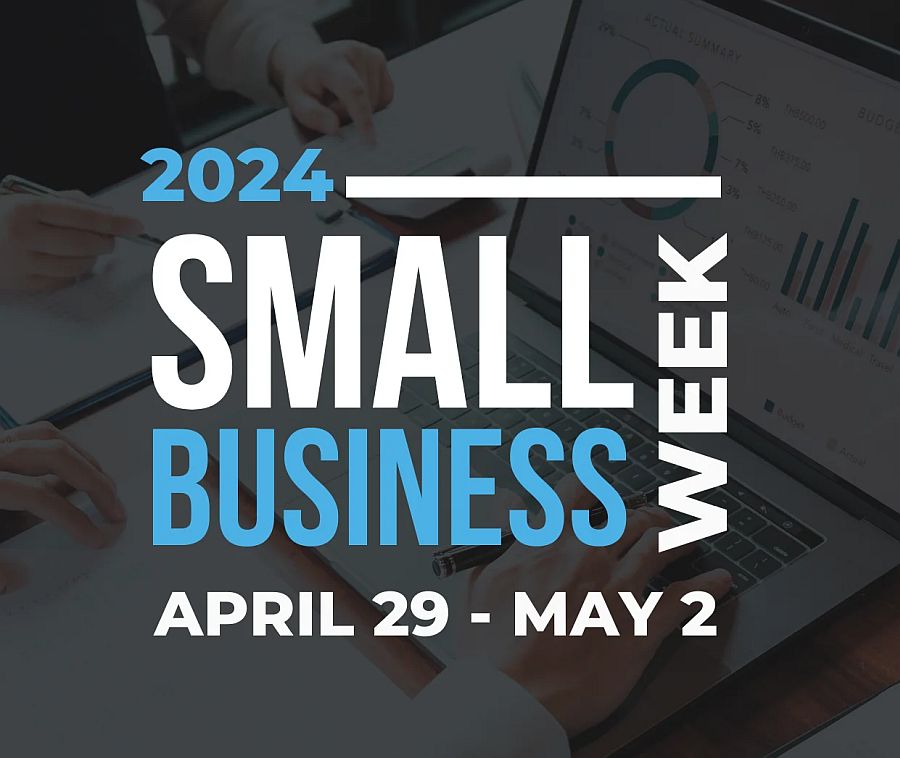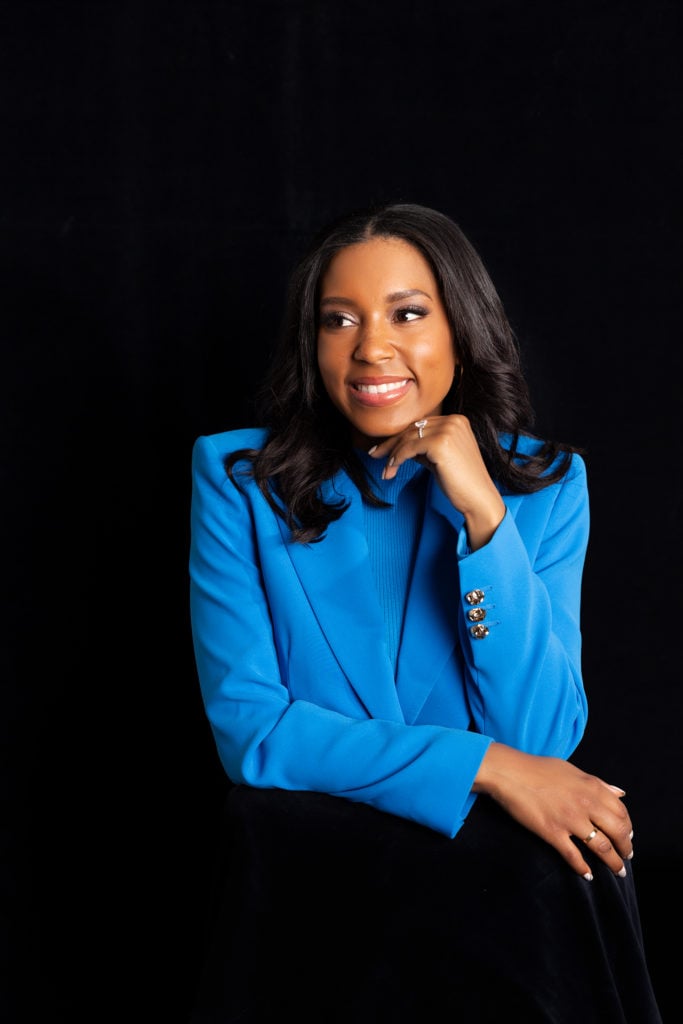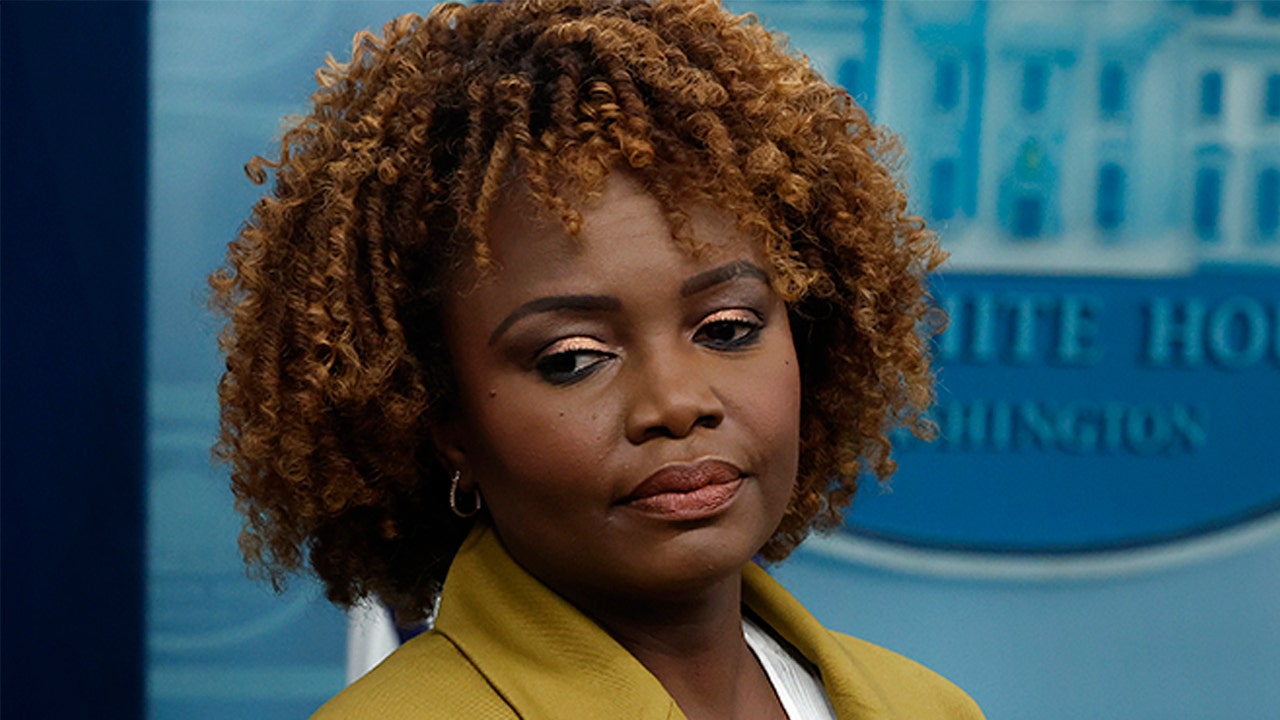MS. RAMPELL: Hello, and welcome to Washington Post Live. I’m Catherine Rampell, an opinion columnist here at The Washington Post, and I am delighted to welcome two Post contributing columnists today. We have Natasha Sarin, who is a professor at Yale Law School and recently launched The Budget Lab at Yale Law. Most importantly, she is a fellow Broadway theater nerd and often accompanies me to musicals. And then we also have Larry Summers, a former Treasury Secretary and National Economic Council director under a couple of different Democratic administrations. Thank you, Larry and Natasha, for joining me today.
Washington
Transcript: The State of the U.S. Economy

DR. SUMMERS: Happy to be with you.
DR. SARIN: Thanks so much for having us.
MS. RAMPELL: So let’s jump right in. Today is the day after Tax Day. I hope everyone out there filed in time or got an extension, as it may be, and we’re here to talk a little bit about the future of tax policy and its role in the U.S. economy and U.S. politics.
Natasha, I thought I would start with you. You recently launched The Budget Lab at Yale. I’m wondering if you could tell us a little bit about what that project is and what hole it is trying to fill, what problem you’re trying to solve with it.
DR. SARIN: Yeah. Thanks, Catherine, and thanks to all of you for listening.
Part of what I got to do when I was in government was be part of some pretty exciting legislative debates about what ultimately became the CHIPS Act, the Bipartisan Infrastructure Law, Build Back Better, which then became the Inflation Reduction Act. And in the context of all of those debates, what ended up being like a very important element that often drove what policies made it into the legislation and what policies didn’t was the score that scorekeepers assigned a particular policy change, and the score is essentially like a cost estimate. It’s like over 10 years, either how much revenue is a particular tax change going to generate for the government or how much cost is a particular spending program going to cost.
But it struck us, me and my co-founders, Danny Yagan, who’s an economist at Berkeley, the former chief economist of the OMB, and Martha Gimbel, who was a senior staffer at the CEA in both the Biden administration and in the Obama administration–it struck us that for a lot of policies that we would like to see ultimately legislated, things like a more generous child tax credit, the right way to evaluate them wasn’t a 10-year cost estimate, because when you invest in kids, it takes a long time for those investments to pay off.
And so part of what we’re trying to do with The Budget Lab is develop the infrastructure to create a more holistic analysis of both the costs and benefits of different types of policy changes.
MS. RAMPELL: Larry, when you were in government, did you see the need for something like this? How did the existing scoring process that Natasha just laid out affect or constrain the kinds of policies you would recommend or that were feasible?
DR. SUMMERS: Look, if you’re a business, you don’t get to make an investment project without bringing to your board the costs and benefits of the project, what it’s going to cost, what subsequent cash flows are going to be, what its impact on your strategy is going to be in a comprehensive way.
We’ve been making progress in the economics profession at bringing that kind of thinking to the public sector, but we’ve got a long way to go. People on the right side of the political spectrum, the conservative side of the political spectrum, have been working to incorporate ideas like that if you cut taxes, maybe, possibly, there will be more entrepreneurship into scoring for a long time. But we’ve never had any ways of recognizing that if you educate kids, you’re less likely to need to imprison them, that if you give people preventive healthcare, you’re less likely to have to give them heart transplants down the road, that if you invest money in the IRS, the IRS will collect money–collect more money and you won’t have to raise taxes.
So there’s been a big gap, and it’s always the case. If you go back to the whole idea of GDP figures, academics in universities were doing them, and then once the concept was proved out, the government started doing it as a routine thing.
And that’s why what Natasha’s doing here is so hugely important. It’s both going to inform current debate, and it’s going to establish procedures and practices that will ultimately come to be incorporated in the standard work of government. So this is social science’s version of laboratory science, where the abstract science of today becomes the drug treatments of tomorrow.
MS. RAMPELL: So, Natasha, there are, to be fair, a few of these alternative scoring outfits, some of them politically aligned with certain groups, some of them also trying to be neutral arbiters akin to the CBO, but obviously separate from the CBO. I’m wondering what you make of that. I mean, my fear is that there’s a risk of sort of undermining the CBO as–the Congressional Budget Office, for those listening–as a neutral arbiter, you know, that there is the risk of sort of emboldening those who want to fight with the rap, which does happen, right? Like, when there is an inconvenience score for a health care bill showing that it will cause a lot of people to lose health insurance, or when there’s an inconvenience score for a bill that costs a lot of money, how do you maintain the usefulness of the Congressional Budget Office as a neutral arbiter while still doing this sort of supplemental or alternative kind of analysis that you are working on?
DR. SARIN: Yeah. And I want to say sort of explicitly that CBO and the Joint Tax Committee and also their sort of counterparts within the executive branch, the Office of Tax Analysis at Treasury, and the Office of Management and Budget folks within the White House, they do kind of like yeoman’s work trying to produce these cost estimates. And it’s not easy to do. It’s in time-constrained ways.
Ultimately, the reason that they’re not doing this sort of cost-benefit analysis that Larry laid out that maybe corporate executives do is because that’s not their remit. They’ve been tasked with something very particular, and I’ve been really interested, sort of, of recent in kind of the origins of scorekeeping and how it arose over the course of the last several decades. And it was in response to concerns about short-term deficits and budget rules and the rules that govern processes like reconciliation, which require them to derive these, like, very precise short-run cost estimates.
I think sort of what Danny and Martha and I bring to the table with respect to this particular sense of, like–I would think about it more as supplemental than as alternative types of analysis–is we’re trying to do a translation exercise that I think is pretty important.
In the economics profession–and Danny and I are both economists who spend time in our sort of academic lives working on exactly these questions. In the economics profession, there’s been a ton of interest in applied work that is able to trace out over the long run, over the medium term, what particular policy interventions are delivering in terms of benefits. If you invest in health care, if you invest in emissions reduction, what are you actually seeing over time?
The challenge is that there hasn’t been much of a translation effort to make that type of information particularly useful or particularly well suited for policy analysis by policymakers, and I think that that kind of translation is a very useful role to play. But it has to be, Catherine, as you described in sort of a central focus of our work, is that it’s scientific in its concerns. And it’s very much focused on sort of being on the level with respect to not putting a thumb on the scale with particular choices or particular assumptions that we’re making, and in fact, we’re elucidating all of our choices and our assumptions and all of our models. They’re open source. This is about democratizing and innovating on the budget process, and that means allowing people to make their own choices with respect to what they think some of these elasticities are or what the evidence tells us.
DR. SUMMERS: Catherine, Natasha was–
MS. RAMPELL: Oh. Yeah, go on, Larry.
DR. SUMMERS: Natasha was my student. So I’m going to brag on her a bit by saying three things. First, there wasn’t always a Congressional Budget Office. The reason we have one was that Alice Rivlin started doing work estimating the long-term costs of programs at the Brookings Institution, and then it took hold in government. Natasha is taking that work and is today’s Alice Rivlin, carrying this kind of thing to a next level and the next approach by building in all the feedback effects.
And second, I understand the argument you made. It’s the argument that the NFL referees made when video replay got invented, but ultimately, people decided that with video replay, refs got better. And there got to be more confidence, not less confidence, in the integrity of football.
And the last thing I’d say is I was in on some of the planning meetings for all of this. I’ve got the honor of being one of the advisors to this project, and something Natasha absolutely insisted on was that this project could only happen if there were people who had served prominently in both Democratic and Republican administrations who would have roles as advisors and fiduciaries of the project.
But so you’re right to worry about what you’re worried about, frankly, Natasha has been all over it.
MS. RAMPELL: Okay, fair enough, Larry.
And actually, the reason why I’m delving into–why we are all delving into these nuts and bolts of how you evaluate policies and what criteria you use to determine their cost, for example, is that we are going to have a major overhaul of the U.S. Tax Code next year. As I’m sure viewers out there know, a large portion of the Trump era tax cuts are expiring, and there’s going to be a bit of a free-for-all, I guess I would say, for what replaces it, what gets extended, what new tax breaks go in or come out. And I’m curious, Larry. What is your best prediction of how much of that set of tax cut extensions is likely to happen, A, and be paid for, B?
DR. SUMMERS: Depends on what happens in the election. The Trump tax cuts will do very differently if Donald Trump is president of the United States, God forbid, than if he isn’t.
But I can tell you some things I’m pretty sure of. I’m pretty sure that it was a dumb idea to cut the corporate tax rate to 21 percent when the Business Roundtable’s idea was that it should only be cut to 25 percent. I’m pretty sure that some of the tax cuts that took the form of subsidies to companies that are making huge money, but somehow never show any reported U.S. profits–I’m pretty sure that those tax cuts are mistakes. So my guess is that there will be some of it that is extended. I hope that a lot of that will be paid for.
Look, on net, we need to be raising taxes in the United States of America. Nobody wants to say it. Nobody who’s looking to be in office will say it. But what does the government do? It takes care of old people. There are going to be vastly more old people in the future than in the past. It buys services like health care and education. They go up much more rapidly than the prices of television sets or shirts. It keeps our national–it keeps our nation secure. Defense spending is going up fast. So we need to be raising taxes, not just to cover for any new tax cuts, but also to hold off the huge accumulation of debt that we are suffering.
If your viewers take only one thing away from this show, I hope it’s this idea.
MS. RAMPELL: So, Nastha–
DR. SUMMERS: Borrowing money and running a budget deficit is not an alternative to raising taxes or cutting spending. It’s a way of deferring doing those things and making them harder.
MS. RAMPELL: So, Natasha, Larry just sort of picked on some Republican proposals, cutting the corporate tax, other kinds of measures that limit our ability to raise revenue. To be fair, President Biden has also pledged not to raise taxes on the bottom 90 percent of Americans, those making $400,000 or less, which does also limit our ability to both levy new kinds of taxes but also raise revenue in general. Do you think in retrospect that pledge was a mistake?
DR. SARIN: I guess what I’d say, Catherine, is that I’ve heard versions of this comparison between Republicans–44 sitting Republican senators and over 200 members of Congress have signed a pledge that says no new taxes ever. And Democrats, where you see coming out of the Biden administration, $5 trillion of revenue raisers from this most recent Green Book.
And, like, I take the point very deeply that the universe that we’re talking about with respect to these tax increases, it’s much of what Larry described on the corporate side and also making sure that we are aligned with respect to our commitment to minimum tax rate on multinationals, no matter where they profit and no matter where they decide to book income.
And on the individual side, it’s very focused on things like raising the capital gains tax rate for the highest earners, things like–and hopefully, we’ll get a chance to talk about it–making sure we’re able to invest in the IRS to be able to collect taxes from those at the very top of the distribution. And so it strikes me as like a totally reasonable premise to have the view that as you start to deliver the tax increases that Larry is totally accurate in describing that we desperately need, given our fiscal situation, the place to start is with wealthy corporations and those at the very top of the distribution who have the greatest ability to pay. And so, in that sense, I have a lot of sort of deep empathy for various versions of what’s come out of the Biden administration over the course of the last several months, and I would hope to see much of it legislated.
I will also say that something that I’m worried about that Larry started to describe is that the contours of the 2025 debate are going to be set by what is expiring. So, like, the debate’s going to be like how much of the expiring provisions do we actually let expire versus how many of them do we decide to keep, and depending on where you are in the political spectrum, you have different views on the answer to that question.
I worry that we’re not going to embrace the importance of using this as a real moment to think seriously about deficit reduction because we are in a fiscal situation where, to Larry’s point, we’re no longer–we’re currently no longer sustainable, but our unsustainability is only going to grow over time because of demographic pressures and other pressures on greater spending needs that the country’s going to face over the years to come.
MS. RAMPELL: Larry, what do you think of the kinds of revenue-raising tax proposals that have come out of this administration? So I’m thinking things like some significant changes to the capital gains tax or a billionaire minimum tax. What do you make of those kinds of ideas, and could you talk through what some of them are for our audience?
DR. SUMMERS: The spirit and general direction is right. Many of the specifics are right. It’s nuts that people who made more than $10 million a year don’t even get noticed when they don’t file a tax return because of insufficiency with the IRS. It’s nuts how easy it is for an entrepreneur to earn huge sums, start a company that’s worth $20 billion, borrow money against that company to buy that–against that stock to buy a yacht, bequeath that stock to his kids, and nobody ever pays any taxes anywhere along the road. And the Biden administration’s doing the right thing by trying to close that. It’s crazy how easy it still is for companies to put their money in the Cayman Islands, and the Biden administration’s on the right side of that.
But even great, dedicated, thoughtful people sometimes go to places they probably shouldn’t venture, and I think the ideas that are in the Biden budget under the label “billionaires tax” about taxing people whose stocks have gone up in value but who actually haven’t gotten any money because they haven’t sold the stock and they haven’t borrowed against the stock, I think that’s a plan that may destroy too many family businesses, it doesn’t correspond to most people’s idea of fairness. And I actually think that’s–sorry to say it–a place where academic thinking wasn’t stopped by adults. So I don’t support that particular line of thought. But the general direction and general impulse, I think is very much a right and proper one.
MS. RAMPELL: We actually have a question from an audience member. Suzanne Bartholomae from Iowa asks, how can tax policy be used to reduce wealth inequality? Which I think is related to all of the things we’re talking about. It’s not just some of the objectives of tax policy or not only about raising revenue. There are equity concerns presumably. Natasha, do you want to try to tackle that? How can tax policy be used to reduce wealth inequality?
DR. SARIN: Yeah. It’s kind of a big question and it has like several answers, I would say, and one of the precepts driving some of the reform proposals that Larry and I have made in the past and that Kim Clausing and I made in a piece that we wrote ahead of the 2025 debate were exactly oriented around, like, how do you get more equity in the tax code?
And I think there are several levers, but I’ll just say three. One is that currently in this country, we have like a two-tiered tax system, because if you’re a wage earner who, you know, has W-2 income, your tax liabilities are automatically withheld. So your tax compliance yesterday on Tax Day was 100 percent mechanically.
If you’re someone who earns income in opaque ways, which is disproportionately people at the very top of the distribution, you have the option kind of to decide whether or not you want to fulfill your civic duty.
And so from an equity perspective, from a revenue-raising perspective, there’s a ton of money there because it turns out that 3 percent of GDP on an annualized basis, that’s about $700 billion a year that’s owed to the IRS is uncollected. But from an equity perspective, making sure that the same set of rules apply no matter how you earn your income or no matter where you are in the wealth distribution strikes us as like super first order.
I also think that much of what Larry is describing with respect to sort of the general ethos of not living in a society where if you happen to be handed assets from your family or happen to be handed shares of a profitable business that your family has started and you are using, ultimately deploying those assets in your own lifetime, but there’s no taxes that are ever assessed because of the nature of how we have a step up in basis upon the transfer of those particular assets, that’s like fundamentally unfair. And it creates sort of inequities that persist across generations, because it’s not just inequities that are in society today. It actually allows people to build up dynastic wealth in ways that ultimately no tax revenue is ever borne from. So that also has to be first order, not just from a revenue-raising perspective, but also from the perspective of equity.
And last thing I’ll say is that, currently, if you have–the current nature of our tax system is such that if you’re a large multinational that has at your disposal, the tools and the tax planners that can help you figure out where you want to locate profits in order to minimize your tax liability, that’s sort of available to you in a way it’s not available to companies that are domiciled in the United States exclusively or small companies. And that’s another layer of inequity. It’s different types of tax treatment depending on what type of corporation you are or how you organize yourself.
The same thing is true with respect to partnerships. They get to organize themselves in ways that the rest of us aren’t able to and are able to take advantage of tax opportunity or lowering their tax liabilities and tax loopholes that allow them access to preferential treatment.
All of these rules need to be changed, not just because we’re going to raise a lot of money to meet our pressing revenue needs, but also because we’re going to create a more equal society.
MS. RAMPELL: So that’s a great segue into another big topic that I wanted to make sure we got to, which is the enormous investment in the Internal Revenue Service that came as a result of the Inflation Reduction Act that passed a couple of years ago. Larry, I know you have been on record as supporting the $80 billion invested in the IRS. So has Natasha. So have I, frankly. How do you think that money has been spent–or how well do you think it’s been spent to date? What in your view has the agency done well? What gives you pause, if anything?
DR. SUMMERS: I’d give the IRS so far on its expenditure of that money an incomplete. There are some very promising plans, and they’ve done some good things, but I don’t think we really yet know just how effective it is going to be. There is enormous potential in this area.
My hope would be that the IRS can stay focused. Natasha and I are generally in agreement, but a place where I don’t agree with Natasha and don’t agree with the IRS is this idea that they should be working hard to develop a system to help fill out the tax returns of middle-income people and lower-income people. Let TurboTax do that. They already do it and largely give it away free or at very low cost, and until the IRS has figured out how to audit the rich people who are paying in returns, tax the people who are using abusive tax shelters, answer the phone consistently, I think they need to avoid mission creep.
And I think the Biden administration has not been good about avoiding mission creep, which is an important part of keeping the IRS focused on collecting the taxes that are owed and providing decent, reasonable, legitimate service to taxpayers with questions or taxpayers who want to file.
But overall, the main problem with the $80 billion is that it’s not $120 billion because there’s enormous potential to absorb resources in collecting more.
MS. RAMPELL: Natasha, I want to make sure–we only have a couple minutes left–that I wanted to make sure that you got a chance to respond to that. What role do you think the IRS should be playing in terms of facilitating Americans’ ability to file their taxes?
DR. SARIN: You know–and Larry is right. This is an area in which we disagree. The average American spends 12 hours and $200 filing their taxes. In countries like Australia and Sweden, you fulfill your tax obligations by saying yes to a text message that you receive, and so I think it is sort of first order for the IRS as they think about enforcement efforts, think about high-end enforcement efforts. Larry and I, like, are very much aligned that that needs to be a focus.
But thinking about how to better serve the American people through investments in programs like Direct File, which again, this was a pilot program, it sort of started late in filing season. It started in March, but 100,000 taxpayers were able to fulfill their tax obligations directly with the IRS, able to get assistance with respect to tax questions directly from the agency.
Work that I did and we put out in The Budget Lab last week suggests that the IRS today has the information that it needs to pre-fill 40 percent of American taxpayers’ tax returns. That type of decrease in tax burden would be huge and meaningful for the American people, and it’s within reach.
The thing that I’m worried about–Larry’s worried it’s 80, not 120. I’m worried that the 80 has actually become 60. And as you go forth in this political process where ultimately the IRS is subject to a whole host of criticisms that are deeply unfair and sort of standard fare, I guess, in our political discourse, you’re going to see these investments decrease, not increase. And I think it really needs to be first order for policymakers to realize that when they make those choices to defund the agency, they’re making choices to decrease the equity of our Tax Code, but they’re also making choices to hurt their constituents with respect to the types of services they’re able to receive.
MS. RAMPELL: Well, on that note, I think we can all look forward to the IRS or maybe AI doing our taxes for us at some point in the future. But unfortunately for today, we are out of time. So we will have to leave it there. Thank you so much for joining us, Natasha Sarin and Larry Summers. Appreciate it.
DR. SARIN: Thanks, Catherine.
MS. RAMPELL: And thank you, of course, to all of you out there for watching. For more of these important conversations, sign up for a Washington Post subscription. You can get a free trial by visiting WashingtonPost.com/live. That’s WashingtonPost.com/slash live. I’m Catherine Rampell. Thank you again for joining us today.

Washington
‘I like to move it’: Zebras escape trailer, gallop on Washington highway: Watch video

“No people were injured in the incident, and the three animals that were re-captured seem to be in good condition as well with no injuries.”
Drivers in Washington state were in for a surprise when they spotted a group of zebras, possibly inspired their friend Marty from “Madagascar,” galloping on the highway.
Washington State Patrol, in an email to USA TODAY, said that four zebras were on their way to Montana, when the driver of their trailer stopped off an exit to secure the trailer that had reportedly become unsecure. The four ‒ which included two adult mares, one stallion and one filly ‒ saw it as an opportunity and escaped from the trailer, running amok on the highway.
While officials and passersby were able to corral three of the zebras, a fourth, the stallion, continues to remain loose, the spokesperson said Monday morning.
No injuries reported
Cameron Satterfield, a spokesperson of the Regional Animal Services of King County, confirmed the same, adding that the three zebras who were corralled were returned to their owner, while the fourth remains at large.
Satterfield said that a “nearby good Samaritan with a horse pasture was able to help corral the zebras.”
“The zebras’ owner was able to bring their trailer to the pasture to pick up the three that were captured and make sure they were secured,” Satterfield said via email. “No people were injured in the incident, and the three animals that were re-captured seem to be in good condition as well with no injuries.”
An investigation report viewed by USA TODAY showed that the incident took place shortly before 1 p.m. Sunday. The owner of the four zebras, Kristine Keltgen was driving them from Winlock, Washington to Anaconda, Montana when she noticed the trailer’s “floor mat flapping and dragging.” As Keltgen stopped and opened the door of the trailer to adjust the mat, the zebras rushed out of the trailer and onto the roadway.
Video footage from the incident, captured by passersby, shows the zebras trotting on the highway among cars and munching on grass before making their way to the backyard of a house near the highway.
Zebras run wild along Washington state highway
Video captured the moments when four zebras were seen running though traffic in Washington state.
‘They’re in my yard’
Whitney Blomquist, who lives at the house, where the zebras wound up, told KOLOTV that she was shocked to see the zebras in her backyard.
“I called someone and was like, ‘Um, so I found the missing zebras. They’re in my yard,” Blomquist said. “Uh, you know, not sure what to do.’”
Blomquist told KOMO News that her security cameras have caught bears multiple times, but spotting the zebras was a first.
“I’ve had plenty of bears in my yard, but this was a new one, for sure,” Blomquist said.
One of the drivers on the highway Dan Barnett told KOLO TV that several cars on the off-ramp pulled over by the guardrail to contain the zebras and prevent them from escaping onto the interstate where they could be hit by speeding vehicles.
Authorities have requested anyone who spots the 4th zebra to call RASKC at 206-296-7387 or law enforcement at 911. Meanwhile, the other 3 continue to be transported back to Montana, according to the investigation report.
Saman Shafiq is a trending news reporter for USA TODAY. Reach her at sshafiq@gannett.com and follow her on X @saman_shafiq7.
Washington
Meet the 2024 Washington Women in Journalism Award Winners
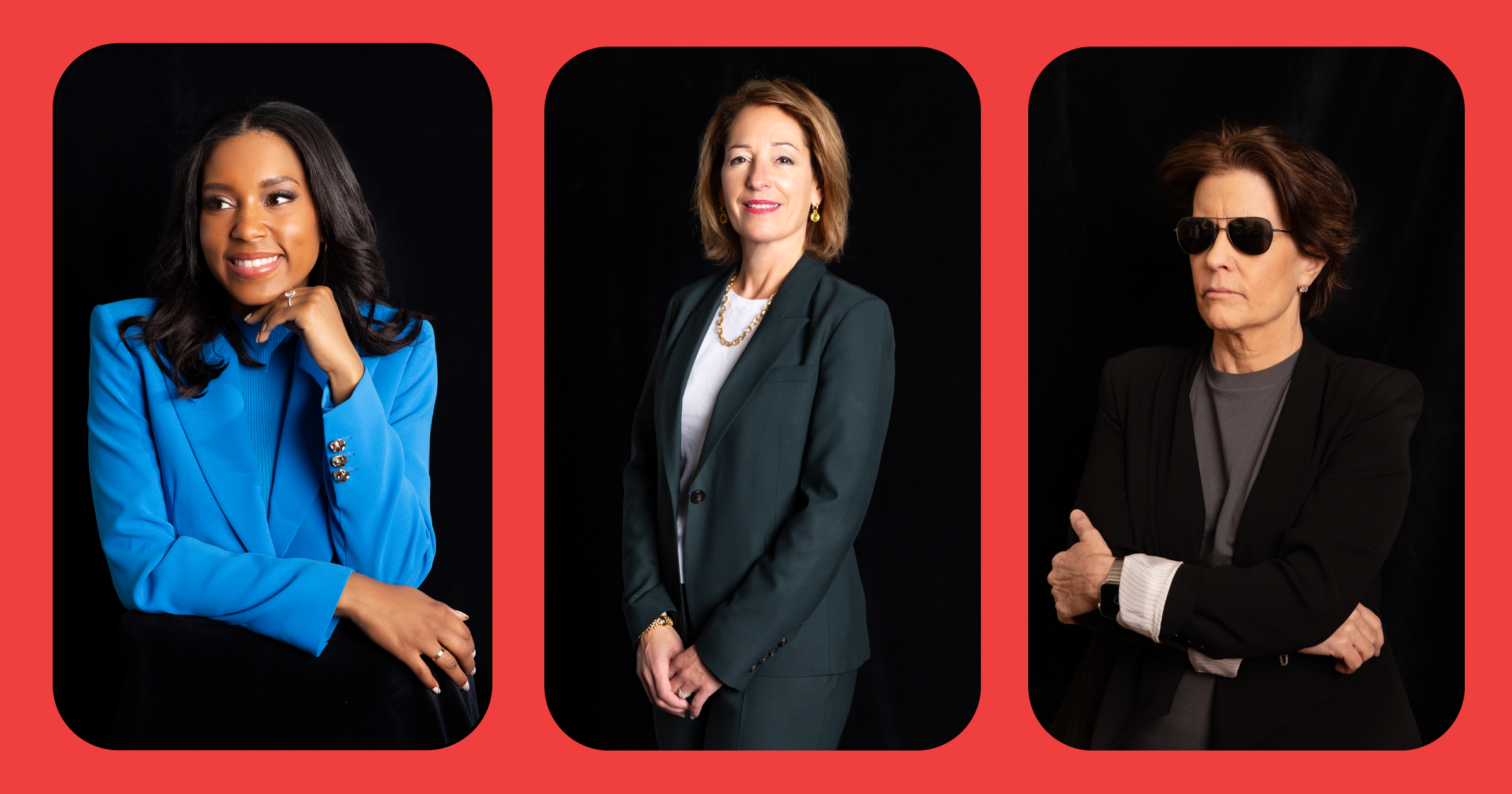
Print Journalism
Carol Leonnig
The Washington Post
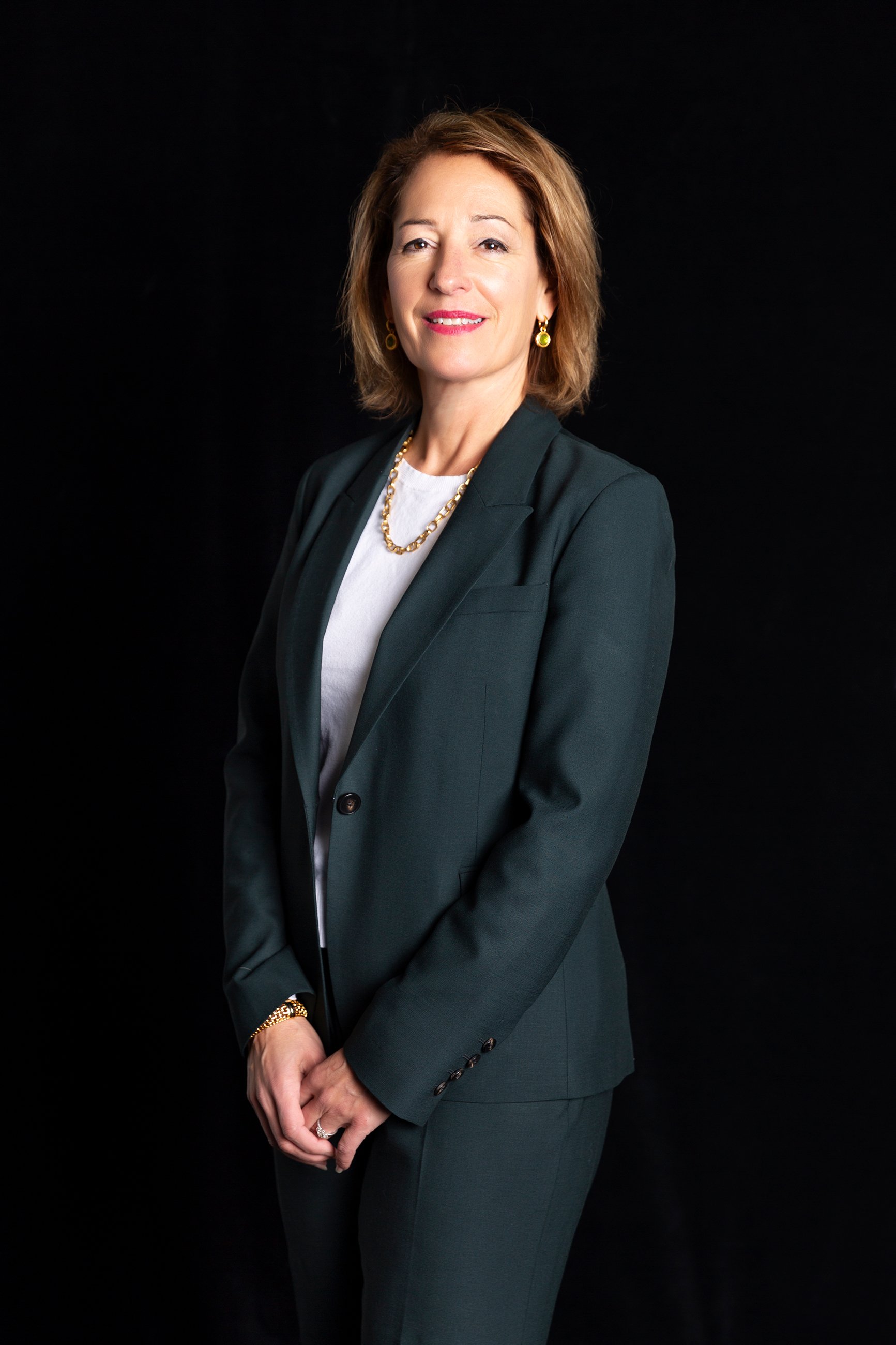
Carol Leonnig has spent much of her career reporting on local, state, and federal governments. Her hard-hitting investigations into the White House and federal agencies have earned her or teams she worked on four Pulitzer Prizes. At the Washington Post since 2000, she’s also an on-air contributor to NBC News and MSNBC and the author or coauthor of three New York Times bestsellers, including Zero Fail: The Rise and Fall of the Secret Service.
Where she grew up: Upper Marlboro.
First byline: “When I was a freshman, I got drafted by the editor of [the Bryn Mawr–Haverford College News] to report on a sledding accident involving students behind our dorm. She assigned me to go to the campus security office and look through their paper logs of how they responded to the accident, because there was a huge delay in getting emergency personnel to the site. I was able to piece together what caused the delay, and I was hooked.”
First journalism job: “In my senior year, I wrote some freelance pieces for the Philadelphia Inquirer. I ended up working there after college.”
First big story: “At the Charlotte Observer, I reported that the governor had overwritten state officials and career public servants’ recommendations to replace bridges [that were at risk of falling down] to get a big, new $8 million bridge built to help his neighbors in a rural community more quickly get from point A to point B. It was on the front page. We found out that the FBI was investigating the governor, and he held a press conference the next day and apologized.”
Hardest story she’s ever done: “Some of the hardest are the ones with people who don’t have boldface names. They are going through incredible trauma, like a mass shooting. The greatest honor that can be bestowed on us is to be entrusted to bring their experiences to a larger readership.”
Hardest part of her job: “Keeping your wits about you when you are being attacked in a very vicious way. The division in our country is so brutal in its attacks on journalists who report things that are factually true but that people don’t want to hear.”
Best journalism advice she’s received: “In the heat of the moment, in this competitive field, don’t let competition drive your decision. Stick to checking and rechecking every fact. No one will remember who published a minor story five minutes faster. Everyone will remember a mistake made in the rush of competition.”
Broadcast Journalism
Back to Top
Rachel Scott
ABC News
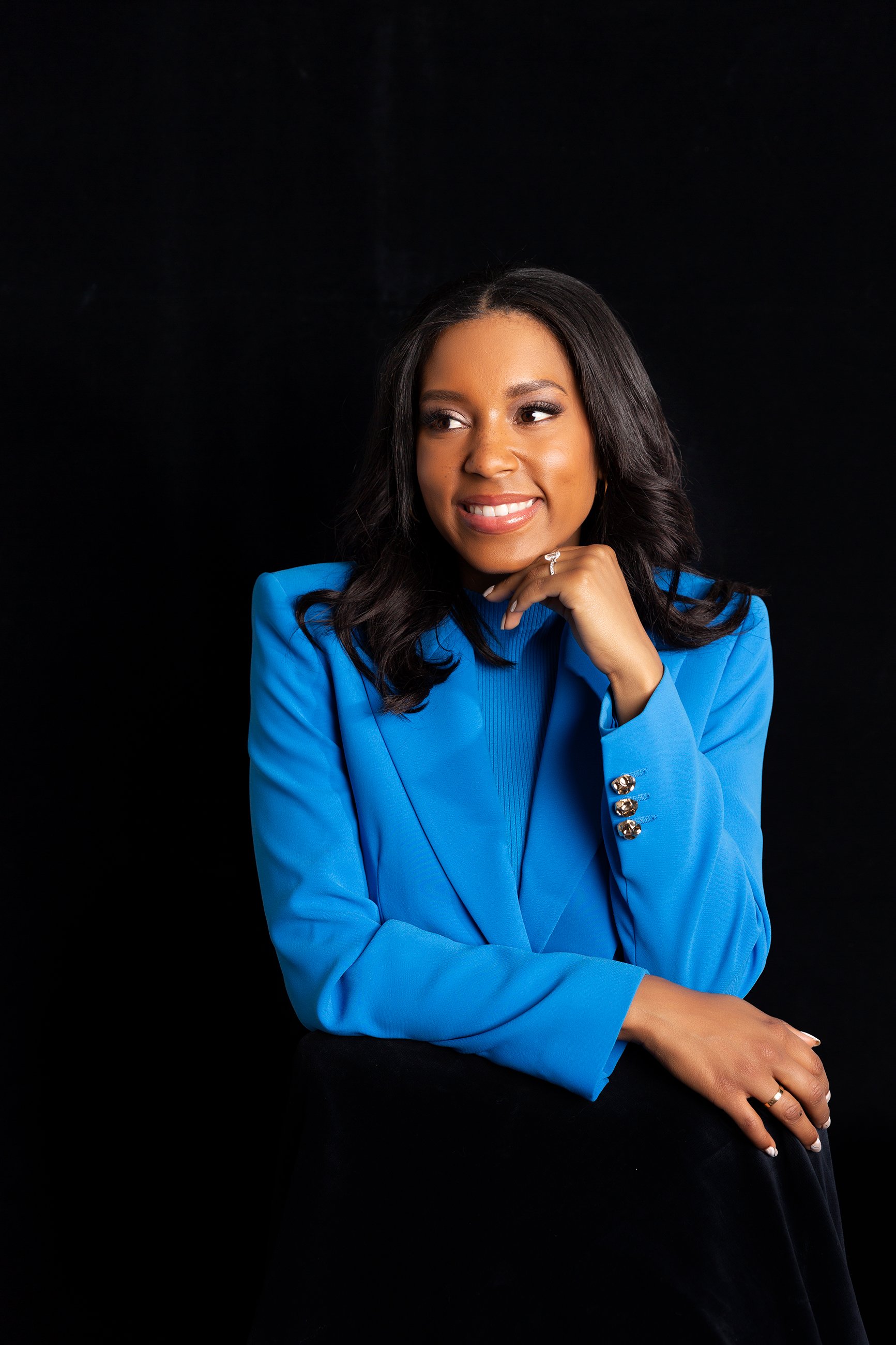

When Rachel Scott started reporting on Capitol Hill for ABC News in 2021, she couldn’t have predicted what she’d be covering her first day–January 6. The job has kept her on her toes ever since: taking her to Geneva, where she pressed Vladimir Putin on human rights; to Texas, where her coverage on the abortion ban earned her a Peabody Award; and to offices all over Capitol Hill.
Where she grew up: Diamond Bar, California.
First journalism job: Production associate for ABC News Live.
What drew her to journalism: “It wasn’t until I had an internship at the White House in 2012 that I discovered my passion for political journalism. I had the opportunity to sit in on several interviews that President Barack Obama did with Diane Sawyer and Barbara Walters, and it was in those rooms I realized that I wanted to be the one asking the tough questions on behalf of the American people.”
On covering January 6: “I was assigned to be outside of the Capitol for what was described as a Trump rally. I remember when things took a crazy turn. George Stephanopoulos asked me to describe what was going on, and what I described was chaos as rioters started to storm the Capitol. I reported outside for hours, stretching into the very late evening.”
Work she’s proudest of: “I traveled to Geneva for President Biden’s high-stakes meeting with Vladimir Putin, and we found out the day before that President Biden and Putin would be holding separate press conferences. I entered [Putin’s] press conference not knowing if he’d call on an American journalist. But he did. When I was called on, I raised the case of Alexei Navalny. I asked President Putin why all of his political prisoners were either dead, in prison, or poisoned. I asked what he was so afraid of. Coming back to my hotel that night, there were students gathered below the balcony of the hotel. They noticed me and started shouting, ‘Freedom of the press!’ In that moment, I understood the gravity of the questions we ask and how much it matters.”
One female journalist she admires: “Diane Sawyer—without question. When I was a USC student, Diane Sawyer came and spoke to journalism students. She told us, ‘Journalism is the business of changing the world.’ I have never forgotten it. When I came to ABC and started covering reproductive rights, Diane reached out to partner on a special. To reach out and partner with a younger journalist speaks volumes to what she has done for women in this industry.”
Lifetime Achievement
Back to Top
Kara Swisher
Vox Media/Podcaster
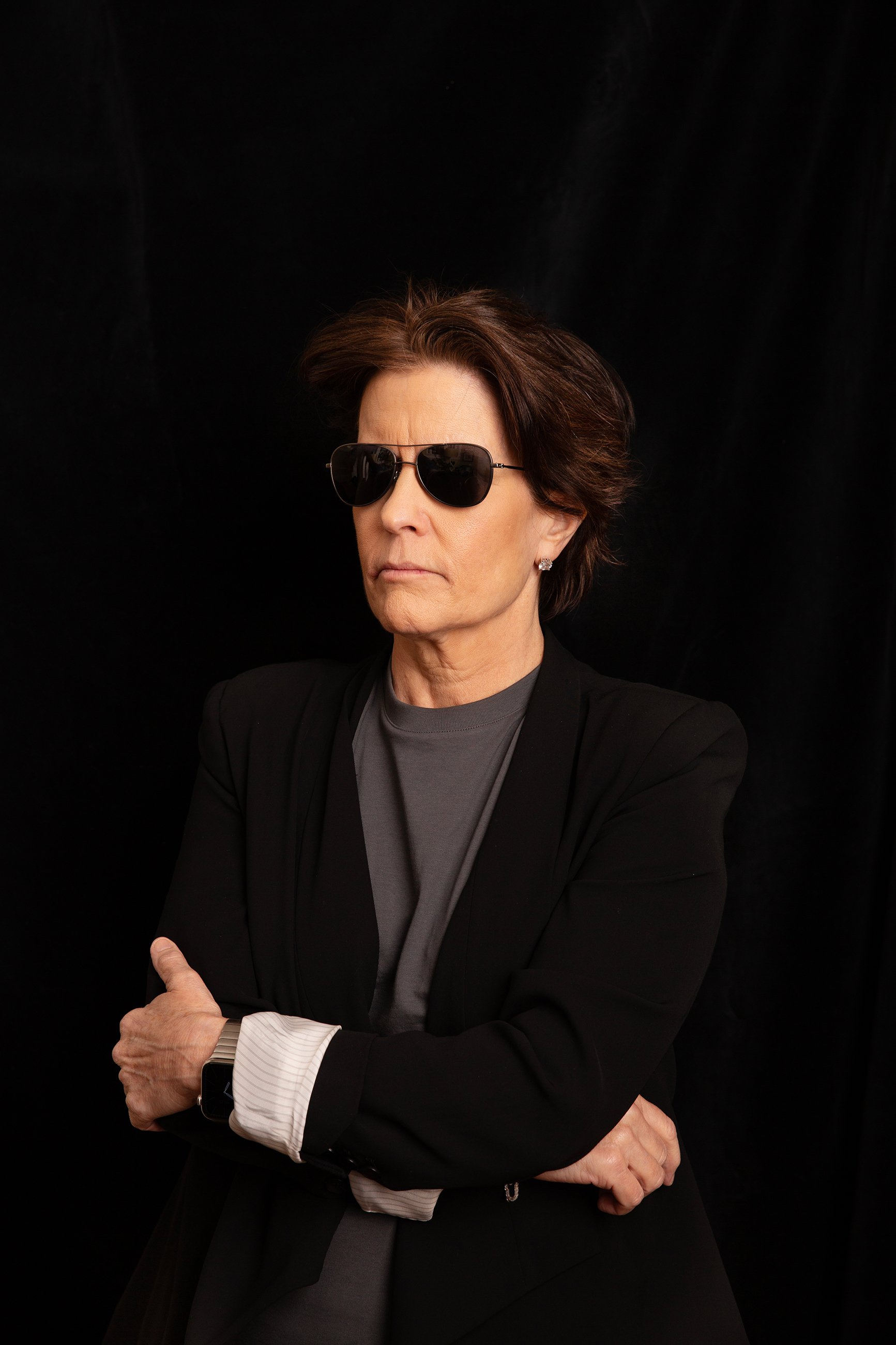

One of the earliest reporters on the internet beat, Kara Swisher has interviewed nearly every influential innovator and entrepreneur in the tech world. Between her commentary on CNN and her hit podcasts, On With Kara Swisher and Pivot, she has a knack for catching the latest scoops on the fast-moving industry. In her recent bestselling memoir, Burn Book: A Tech Love Story, Swisher gives an insider perspective into Silicon Valley’s titans and the impact of their innovations on our world.
Where she grew up: “A lot of places—Long Island and Princeton, New Jersey, principally.”
First byline: “I wrote columns at the Hoya at Georgetown University. I just wrote about campus life and things that affected students.”
First journalism job: “I started writing similar stories for the Washington Post. I was their stringer from the campus.”
First big story: “There was a family in Washington who was one of the wealthiest—they owned a string of retail stores. I wrote about the breakup of the family. Herbert Haft and Robert Haft—they were father and son, and they had a war. It was sort of like King Lear.”
What drew her to journalism: “I’m a curious person, and I like asking questions. I’m a good writer. I wasn’t good at other things. I wanted to be an architect, and I wasn’t good at that.”
One hard thing about her job: “Reporters play a really important part in society, and the current attacks on them are depressing and stupid.”
Best journalism advice she’s received: “Walt Mossberg, who I dedicated my book to, always was like, ‘Just go and find the truth and ask direct questions.’ It’s not very complicated, but I think it’s really important to do what you do with integrity and intelligence, as well as try to be interesting and be interested at the same time.”
A piece of advice she’d share to budding journalists: “Just work hard and ask good questions. You have to know what you’re talking about. You have to be accurate. You have to be prepared. Constantly assess what you need to improve on.”
What she’d like to see change to make the journalism industry better for women: “Hire the most diverse groups of people. I mean not just race and gender but backgrounds and political affiliation. I think it’s better to get different perspectives.”
Star to Watch
Back to Top
Meridith McGraw
Politico
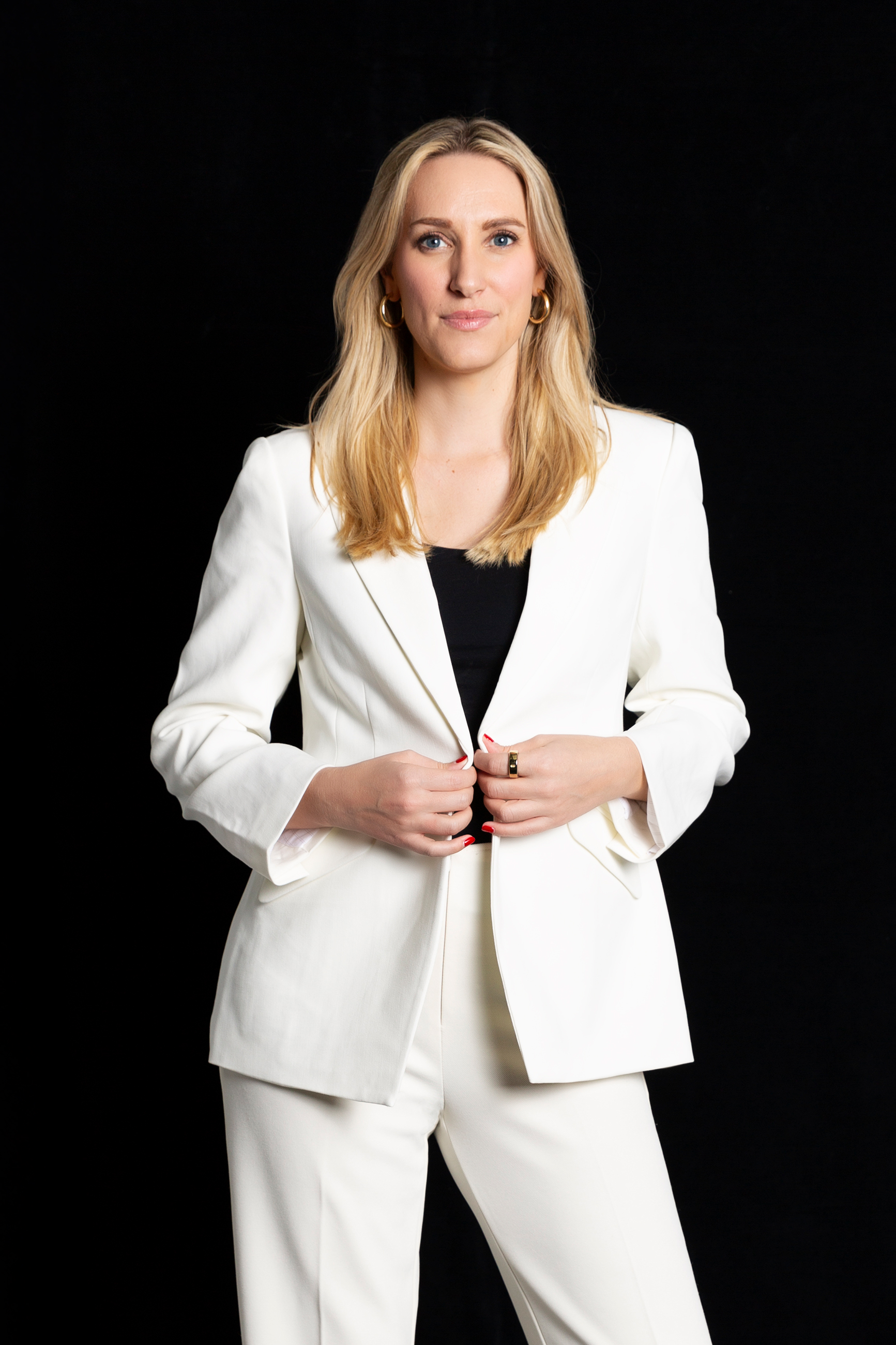

It would be an understatement to say that 2024 has been–and will continue to be–a whirlwind for Meridith McGraw. As Politico’s national political correspondent, she’s in charge of covering all things related to Donald Trump, the 2024 election, and Republican politics. Prior to joining Politico in 2019, she covered the White House and Capitol Hill for ABC News.
Where she grew up: Vienna, West Virginia.
What drew her to journalism: “I love to write. I’m interested in politics. And I grew up with parents who encouraged debate and conversation around the dinner table on what was going on in the world.”
First journalism job: “The Frank Reynolds Fellowship at ABC News. I went to Columbia Journalism School and had my eye on that internship from day one. I really wanted to come to Washington.”
First byline: “A very short story on the National Zoo’s new baby panda, which anybody in DC knows is a big deal.”
Hardest story she’s ever done: “It’s hard to pinpoint one story. [My first year at Politico] was such a challenging time. It was during the pandemic, and I was on the White House team. Nobody knew what was going on in terms of Covid. The George Floyd protests were happening. It was a particularly important and challenging time to be a reporter in DC.”
Best journalism advice she’s received: “Try to zig when other people zag. Think of unexpected or uncovered angles to the stories that everybody’s reading.”
Most challenging aspect of covering Trump: “At times, it feels hard to keep up with the volume of news. That’s why it’s important to cut through the noise and help people discern the most important things they need to know.”
How she stays sane covering politics in 2024: “I’m really lucky to have great friends and family, and an adorable dog [Daisy, a basset hound], but a big part of it is understanding the historic importance of the moment we’re in.”
What she’d like to see change in the journalism industry to make it better for women: “Pay equity continues to be something we need to see [improve].”
Favorite part of the job: “I’m happy not being the smartest person in the room and getting to learn from other people. I love that this job allows me to call up lawmakers, expert thinkers, [and] everyday people I wouldn’t normally encounter.”
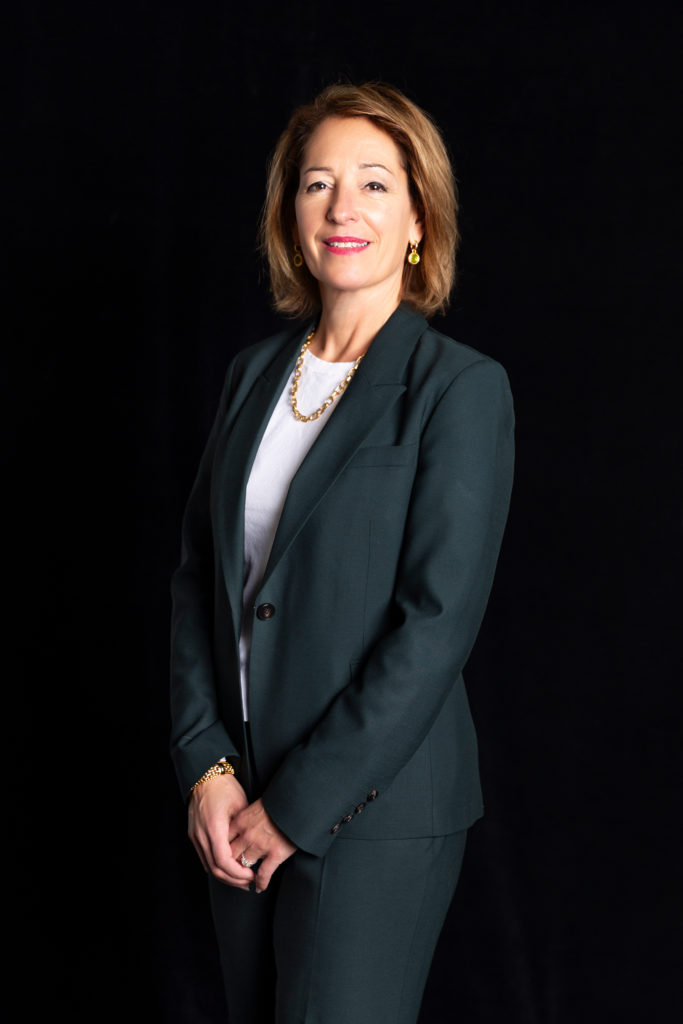

Print Journalism
Back to Top
Carol Leonnig
The Washington Post
Carol Leonnig has spent much of her career reporting on local, state, and federal governments. Her hard-hitting investigations into the White House and federal agencies have earned her or teams she worked on four Pulitzer Prizes. At the Washington Post since 2000, she’s also an on-air contributor to NBC News and MSNBC and the author or coauthor of three New York Times bestsellers, including Zero Fail: The Rise and Fall of the Secret Service.
Where she grew up: Upper Marlboro.
First byline: “When I was a freshman, I got drafted by the editor of [the Bryn Mawr–Haverford College News] to report on a sledding accident involving students behind our dorm. She assigned me to go to the campus security office and look through their paper logs of how they responded to the accident, because there was a huge delay in getting emergency personnel to the site. I was able to piece together what caused the delay, and I was hooked.”
First journalism job: “In my senior year, I wrote some freelance pieces for the Philadelphia Inquirer. I ended up working there after college.”
First big story: “At the Charlotte Observer, I reported that the governor had overwritten state officials and career public servants’ recommendations to replace bridges [that were at risk of falling down] to get a big, new $8 million bridge built to help his neighbors in a rural community more quickly get from point A to point B. It was on the front page. We found out that the FBI was investigating the governor, and he held a press conference the next day and apologized.”
Hardest story she’s ever done: “Some of the hardest are the ones with people who don’t have boldface names. They are going through incredible trauma, like a mass shooting. The greatest honor that can be bestowed on us is to be entrusted to bring their experiences to a larger readership.”
Hardest part of her job: “Keeping your wits about you when you are being attacked in a very vicious way. The division in our country is so brutal in its attacks on journalists who report things that are factually true but that people don’t want to hear.”
Best journalism advice she’s received: “In the heat of the moment, in this competitive field, don’t let competition drive your decision. Stick to checking and rechecking every fact. No one will remember who published a minor story five minutes faster. Everyone will remember a mistake made in the rush of competition.”
Broadcast Journalism
Back to Top
Rachel Scott
ABC News
When Rachel Scott started reporting on Capitol Hill for ABC News in 2021, she couldn’t have predicted what she’d be covering her first day–January 6. The job has kept her on her toes ever since: taking her to Geneva, where she pressed Vladimir Putin on human rights; to Texas, where her coverage on the abortion ban earned her a Peabody Award; and to offices all over Capitol Hill.
Where she grew up: Diamond Bar, California.
First journalism job: Production associate for ABC News Live.
What drew her to journalism: “It wasn’t until I had an internship at the White House in 2012 that I discovered my passion for political journalism. I had the opportunity to sit in on several interviews that President Barack Obama did with Diane Sawyer and Barbara Walters, and it was in those rooms I realized that I wanted to be the one asking the tough questions on behalf of the American people.”
On covering January 6: “I was assigned to be outside of the Capitol for what was described as a Trump rally. I remember when things took a crazy turn. George Stephanopoulos asked me to describe what was going on, and what I described was chaos as rioters started to storm the Capitol. I reported outside for hours, stretching into the very late evening.”
Work she’s proudest of: “I traveled to Geneva for President Biden’s high-stakes meeting with Vladimir Putin, and we found out the day before that President Biden and Putin would be holding separate press conferences. I entered [Putin’s] press conference not knowing if he’d call on an American journalist. But he did. When I was called on, I raised the case of Alexei Navalny. I asked President Putin why all of his political prisoners were either dead, in prison, or poisoned. I asked what he was so afraid of. Coming back to my hotel that night, there were students gathered below the balcony of the hotel. They noticed me and started shouting, ‘Freedom of the press!’ In that moment, I understood the gravity of the questions we ask and how much it matters.”
One female journalist she admires: “Diane Sawyer—without question. When I was a USC student, Diane Sawyer came and spoke to journalism students. She told us, ‘Journalism is the business of changing the world.’ I have never forgotten it. When I came to ABC and started covering reproductive rights, Diane reached out to partner on a special. To reach out and partner with a younger journalist speaks volumes to what she has done for women in this industry.”
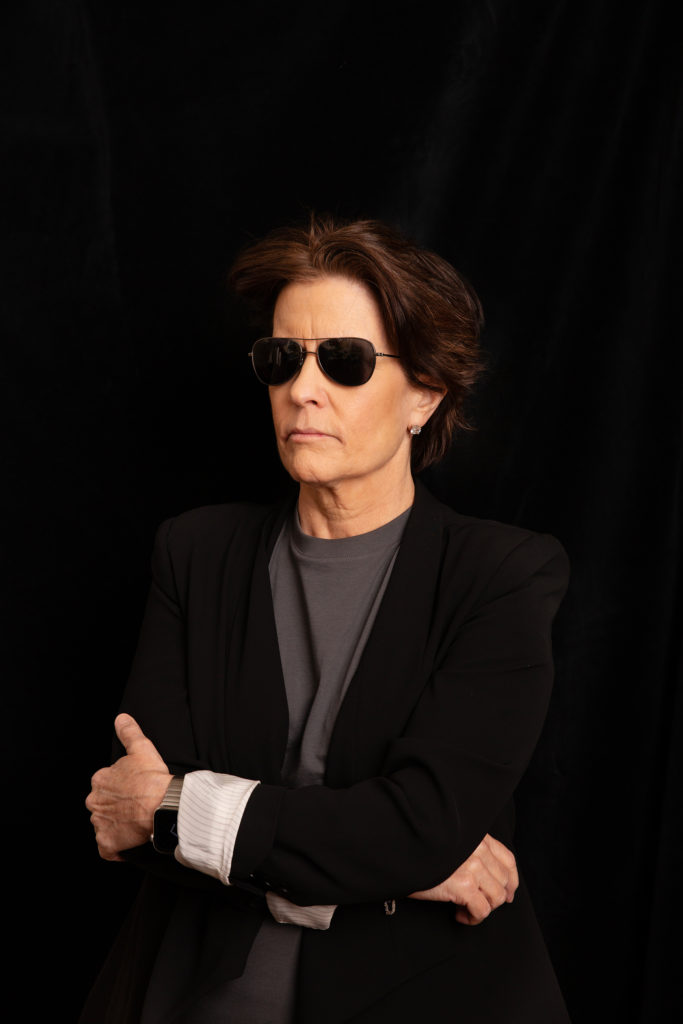

Lifetime Achievement
Back to Top
Kara Swisher
Vox Media/Podcaster
One of the earliest reporters on the internet beat, Kara Swisher has interviewed nearly every influential innovator and entrepreneur in the tech world. Between her commentary on CNN and her hit podcasts, On With Kara Swisher and Pivot, she has a knack for catching the latest scoops on the fast-moving industry. In her recent bestselling memoir, Burn Book: A Tech Love Story, Swisher gives an insider perspective into Silicon Valley’s titans and the impact of their innovations on our world.
Where she grew up: “A lot of places—Long Island and Princeton, New Jersey, principally.”
First byline: “I wrote columns at the Hoya at Georgetown University. I just wrote about campus life and things that affected students.”
First journalism job: “I started writing similar stories for the Washington Post. I was their stringer from the campus.”
First big story: “There was a family in Washington who was one of the wealthiest—they owned a string of retail stores. I wrote about the breakup of the family. Herbert Haft and Robert Haft—they were father and son, and they had a war. It was sort of like King Lear.”
What drew her to journalism: “I’m a curious person, and I like asking questions. I’m a good writer. I wasn’t good at other things. I wanted to be an architect, and I wasn’t good at that.”
One hard thing about her job: “Reporters play a really important part in society, and the current attacks on them are depressing and stupid.”
Best journalism advice she’s received: “Walt Mossberg, who I dedicated my book to, always was like, ‘Just go and find the truth and ask direct questions.’ It’s not very complicated, but I think it’s really important to do what you do with integrity and intelligence, as well as try to be interesting and be interested at the same time.”
A piece of advice she’d share to budding journalists: “Just work hard and ask good questions. You have to know what you’re talking about. You have to be accurate. You have to be prepared. Constantly assess what you need to improve on.”
What she’d like to see change to make the journalism industry better for women: “Hire the most diverse groups of people. I mean not just race and gender but backgrounds and political affiliation. I think it’s better to get different perspectives.”
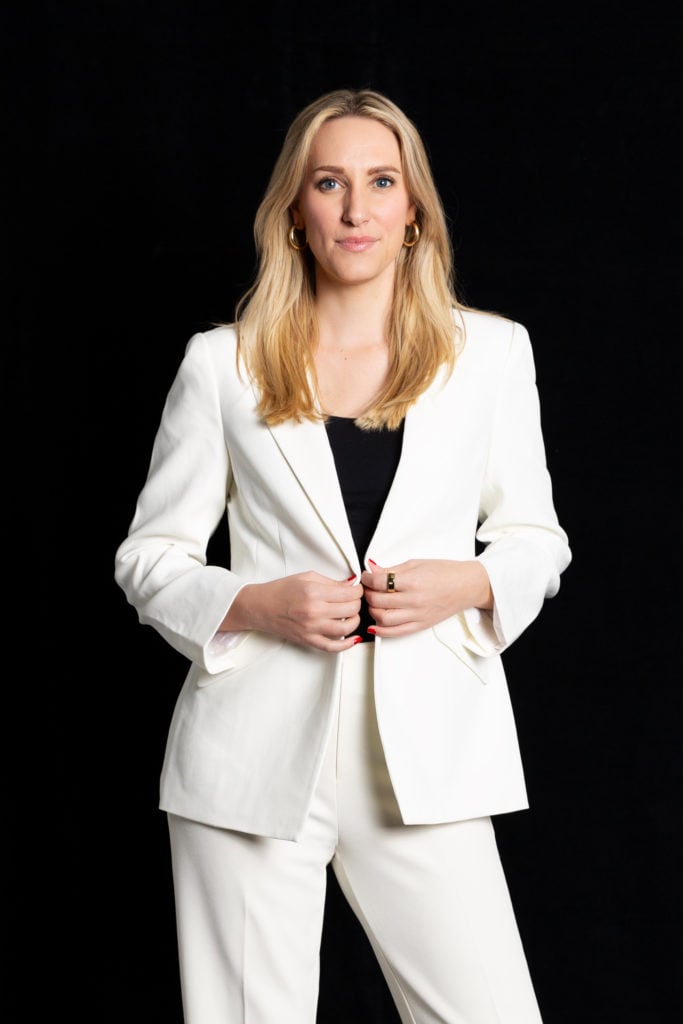

Star to Watch
Back to Top
Meridith McGraw
Politico
It would be an understatement to say that 2024 has been–and will continue to be–a whirlwind for Meridith McGraw. As Politico’s national political correspondent, she’s in charge of covering all things related to Donald Trump, the 2024 election, and Republican politics. Prior to joining Politico in 2019, she covered the White House and Capitol Hill for ABC News.
Where she grew up: Vienna, West Virginia.
What drew her to journalism: “I love to write. I’m interested in politics. And I grew up with parents who encouraged debate and conversation around the dinner table on what was going on in the world.”
First journalism job: “The Frank Reynolds Fellowship at ABC News. I went to Columbia Journalism School and had my eye on that internship from day one. I really wanted to come to Washington.”
First byline: “A very short story on the National Zoo’s new baby panda, which anybody in DC knows is a big deal.”
Hardest story she’s ever done: “It’s hard to pinpoint one story. [My first year at Politico] was such a challenging time. It was during the pandemic, and I was on the White House team. Nobody knew what was going on in terms of Covid. The George Floyd protests were happening. It was a particularly important and challenging time to be a reporter in DC.”
Best journalism advice she’s received: “Try to zig when other people zag. Think of unexpected or uncovered angles to the stories that everybody’s reading.”
Most challenging aspect of covering Trump: “At times, it feels hard to keep up with the volume of news. That’s why it’s important to cut through the noise and help people discern the most important things they need to know.”
How she stays sane covering politics in 2024: “I’m really lucky to have great friends and family, and an adorable dog [Daisy, a basset hound], but a big part of it is understanding the historic importance of the moment we’re in.”
What she’d like to see change in the journalism industry to make it better for women: “Pay equity continues to be something we need to see [improve].”
Favorite part of the job: “I’m happy not being the smartest person in the room and getting to learn from other people. I love that this job allows me to call up lawmakers, expert thinkers, [and] everyday people I wouldn’t normally encounter.”
Back to Top
Past Winners
2023
Jacqueline Alemany
The Washington Post
Gloria Borger
CNN
Asma Khalid
NPR
Kelly O’Donnell
NBC
2022
Kaitlan Collins
CNN
Kathleen Parker
The Washington Post
Martha Raddatz
ABC
Ayesha Rascoe
NPR
2021
Yamiche Alcindor
PBS
Karen Attiah
The Washington Post
Susan Glasser
The New Yorker
Norah O’Donnell
CBS
2020
Molly Ball
Time
Rita Braver
CBS
Anna Palmer
Politico
Kristen Welker
NBC
2019
Andrea Mitchell
NBC
Ashley Parker
The Washington Post
Abby Phillip
CNN
Amanda Terkel
HuffPost
2018
Amanda Bennett
Voice of America
Audie Cornish
NPR
Lynn Sweet
The Chicago Sun-Times
Amy Walter
The Cook Political Report
2017
Mary Katharine Ham
CNN
Mary Louise Kelly
NPR
Jane Mayer
The New Yorker
Cokie Roberts
NPR/ABC/PBS
2016
Dana Bash
CNN
Kathryn Lopez
National Review
Susan Page
USA Today
Carolyn Ryan
The New York Times
This article appears in the May 2024 issue of Washingtonian.
Washington
N.Y. must ban menthol cigarettes: Washington stalls so Albany must act

A year ago, to her credit, Gov. Hochul tried to have New York ban menthol flavored cigarettes, which cause disproportionate sickness and death in the Black population. But there was a heavy lobbying effort in Albany by the tobacco cartel cloaked under the guise of civil rights that a ban, as some other states have, would somehow harm the African-American community.
The lies worked, as did the argument that there was no need for New York to act because Washington was going to impose a national ban a few months down the road. So Hochul’s ban was set aside.
That promised national ban from the Food and Drug Administration and parent Department of Health and Human Services was expected last fall. But it didn’t happen and now it’s been pushed off again. Don’t expect anything before the November election. And who knows what will happen after that.
On Friday, HHS Secretary Xavier Becerra gave a statement that was as pathetically weak as it was short:
“This rule has garnered historic attention and the public comment period has yielded an immense amount of feedback, including from various elements of the civil rights and criminal justice movement. It’s clear that there are still more conversations to have, and that will take significantly more time.”
Compare that to what the same man said two years ago: “The proposed rules would help prevent children from becoming the next generation of smokers and help adult smokers quit. Additionally, the proposed rules represent an important step to advance health equity by significantly reducing tobacco-related health disparities.”
The “immense amount of feedback” Becerra now prattles about is from the tobacco lobbyists and their fronts. The secretary’s phrase of “more conversations” means more delay and more menthol tobacco sales with more sickness and more death. The death cartel keeps cashing in on the lungs and bodies of Black Americans.
The NAACP agrees with the American Cancer Society, which agrees with the American Heart Association, which agrees with the American Lung Association, which agrees with a united public health establishment and hospitals and physicians.
Joe Biden needs the votes of Black Americans this fall and there is plenty of speculation that political considerations were a factor in this public health matter. Yes, menthol cigarette use is largely centered in the Black community, however a ban won’t harm the community, but help it. The most important civil right is the right to live and menthol kills and it kills far more Black people.
How perverse to claim that harming the Black community is a civil right cause.
On Friday, the FDA did do something, however, in finalizing Guidance for Industry (GFI) #120: Veterinary Feed Directive Regulation Questions and Answers about the use of approved animal drugs intended for use in or on the feed of food-producing animals that require veterinary oversight. That’s important, but more important than a known killer preying on the Black community? A menthol ban would reduce the amount of smoking, saving lives.
Now that feds have succumbed to the smokescreen of Tobacco Row, it’s back to the states. The Legislature has more than a full month before they break for the year. Ban menthol tobacco in New York.
-

 World1 week ago
World1 week agoShipping firms plead for UN help amid escalating Middle East conflict
-

 Politics1 week ago
Politics1 week agoICE chief says this foreign adversary isn’t taking back its illegal immigrants
-

 Politics1 week ago
Politics1 week ago'Nothing more backwards' than US funding Ukraine border security but not our own, conservatives say
-

 News1 week ago
News1 week agoThe San Francisco Zoo will receive a pair of pandas from China
-

 World1 week ago
World1 week agoTwo Mexican mayoral contenders found dead on same day
-

 World1 week ago
World1 week agoBrussels, my love? The EU single market is not sexy enough for voters
-

 Politics1 week ago
Politics1 week agoRepublican aims to break decades long Senate election losing streak in this blue state
-

 World1 week ago
World1 week agoEU sanctions extremist Israeli settlers over violence in the West Bank



